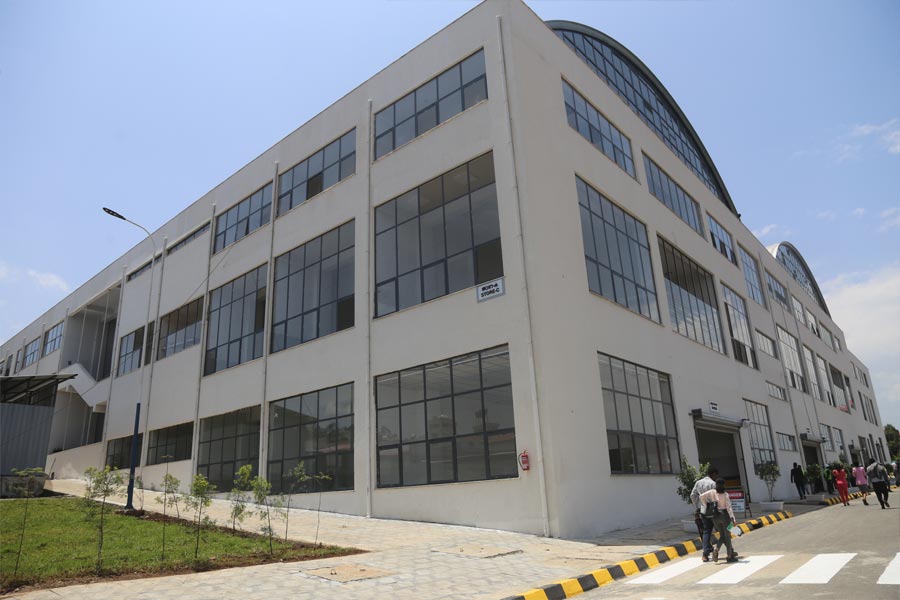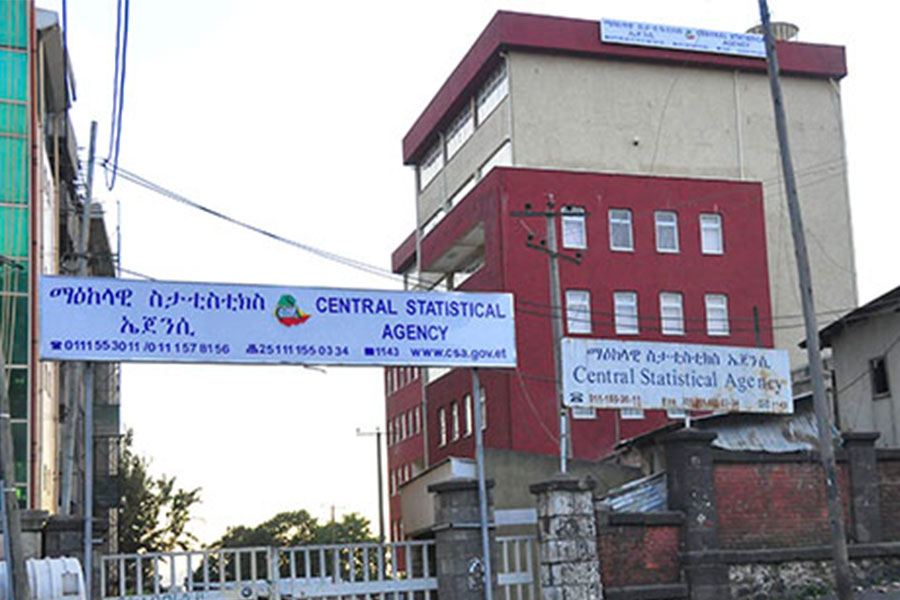
Agenda | Aug 01,2020
Jun 7 , 2020
By FASIKA TADESSE ( FORTUNE STAFF WRITER )
After three consecutive months of spikes, headline inflation dropped by three percentage points last month, according to the latest Consumer Price Index from the Central Statistical Agency (CSA).
Headline inflation, an indicator of the cost of living, reached an annual rate of 19.8pc in May, representing a 3.1-percentage-point fall from the preceding month. Last month's drop also helped the country pull down the figure from 22.9pc, the highest rate in a seven-year period along with the same rate that was registered as an annual average of the 2012/13 fiscal year.
During the last month, food inflation registered a considerable 5.5-percentage-point drop to 20.3pc, while non-food inflation recorded a slight tick down of 0.1 percentage points to 19.1pc.
The month-to-month general Consumer Price Index, which shows price changes between April and May, shows an increase of 1.7pc, a slightly lower growth rate from the 2.1pc that was registered in the preceding month.
"Most cereal prices rose slightly during the month," reads the report from the Agency. "Whole black pepper continued to increase in the last month."
However, the prices of maize, wheat and sorghum fell during the reporting period in some of the regional states, according to the report.
A steady rise in the price of alcohol, tobacco, khat, house rent, housing repair and maintenance, energy, transportation and medical care were attributed as causes for the non-food inflation rate spike over the past year.
Though last month's rate stood as the lowest in four months, it still stands higher than the 13.7pc average inflation that was recorded last fiscal year. May's inflation rate report comes at a time when the economy is struggling with the disruptions caused by the Novel Coronavirus (COVID-19) pandemic.
To offset the challenges caused by the pandemic, two weeks ago the parliament approved 48.6 billion Br as a supplementary budget. The budget will be directed to food support for vulnerable groups of 30 million people and to procure medical equipment and medicine to combat the pandemic.
The government will take all the precautionary measures to avoid or minimise the inflation that could be caused by the additional budget, according to Ahmed Shide, minister of Finance.
The Ministry of Agriculture has forecasted that Ethiopia may lose about eight percent of agricultural productivity next year due to COVID-19 and swarms of desert locusts, which have already damaged 200,000ha of cropland in a region struggling with food security.
Considering the repercussions COVID-19 could cause to the economy, the Ministry of Finance has also proposed a 476-billion-Br federal budget for the coming fiscal year. The value is 23pc higher than the current fiscal year's budget.
Alemayehu Geda (PhD), a macroeconomist and lecturer at Addis Abeba University, says that the current economic situation in the country will involve higher inflation, especially for food prices.
The impact of the virus will lead to higher inflationary pressure since the government's expenditures will rise while revenues from different sources, including grants, will dwindle, according to Alemayehu.
"This will steer the country toward a budget deficit," he said. "To cover the deficit, the government might print cash, which will automatically cause higher inflation."
PUBLISHED ON
Jun 07,2020 [ VOL
21 , NO
1050]

Viewpoints | Sep 04,2021

Fortune News | Aug 12,2023

Fortune News | Feb 24,2024

Fortune News | Jan 26,2019

Commentaries | Jun 15,2024

Jul 13 , 2024 . By AKSAH ITALO
Investors who rely on tractors, trucks, and field vehicles for commuting, transportin...

Jul 13 , 2024 . By MUNIR SHEMSU
The cracks in Ethiopia's higher education system were laid bare during a synthesis re...

Jul 13 , 2024 . By AKSAH ITALO
Construction authorities have unveiled a price adjustment implementation manual for s...

Jul 13 , 2024
The banking industry is experiencing a transformative period under the oversight of N...

Jul 20 , 2024
In a volatile economic environment, sudden policy reversals leave businesses reeling...

Jul 13 , 2024
Policymakers are walking a tightrope, struggling to generate growth and create millio...

Jul 7 , 2024
The federal budget has crossed a symbolic threshold, approaching the one trillion Bir...

Jun 29 , 2024
In a spirited bid for autonomy, the National Bank of Ethiopia (NBE), under its younge...